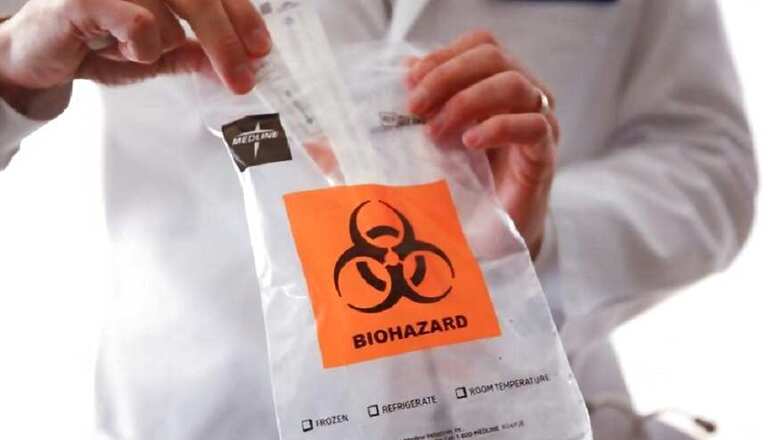
views
New Delhi: A month after COVID-19 cases started picking up across the country, the Indian government is now gearing up to take testing for the infectious disease one notch higher.
From the beginning of April, the lab network under Indian Council of Medical Research (ICMR) has been clocking nearly 10,000 tests per day, publicly available daily testing updates show.
In the middle of March, ICMR had said that the test load was only 60-70 samples per day and the number of COVID-19 positive cases in the country at that time was 114, as per the government's COVID India Updates tracker.
From 60-70 samples per day, the number of samples tested per day has risen to 11,432 samples, according to ICMR's evening update published on April 6. The higher utilisation of labs under ICMR network has also occurred with the rise in COVID-19 hotspots in the country.
According to a note released by ICMR on Monday, it has now approved around 200 labs, both public and private, for testing COVID-19 through reverse transcription–polymerase chain reaction method and is moving towards a 24x7 working model to prepare for a worst case scenario.
“Right now, we have the capacity to test 13,000 samples per day and if we do it in two shifts then we can even test 25,000 samples per day. So our testing capacity is more than enough and we need not worry about that. But we need to test the right kind of people,” said Dr.Raman R Gangakhedkar, Head, Epidemiology and Communicable Diseases Division.
Even though its broad protocol asks to test only those symptomatic people who have travelled abroad, symptomatic health care workers, patients hospitalized with severe acute respiratory illness (SARI) and high-risk contacts of a confirmed case, the protocol has been made flexible for hotspots.
After a hotspot is detected and a geographically defined area is sealed, all suspect cases are being tested after contact tracing.
The union health ministry's policy document on containing large outbreaks said that as part of the strategy to contain the outbreak, expanded lab capacity is necessary to test suspect cases, high-risk contacts and SARI cases after contacts have been identified during surveillance.
Experts said that an increase in testing will certainly help in identifying people who need to be isolated and it will inform decisions on quarantining local areas. “Increased the number of Rt-PCR tests may certainly lead to detection of more cases in the country. As we test more, we will also need more logistical capacity for sample collection, transportation and skilled manpower to run these tests,” said Dr. Tanmay Mahapatra, medical doctor and epidemiologist who is currently working as team lead for concurrent measurement and learning in Patna for CARE India, a non-profit organization.
Dr.Jayaprakash Muliyal, a retired epidemiologist and former principal of Christian Medical College, Vellore, said that more testing may not change things drastically but importantly, it will help us to locate the spots where the coronavirus is spreading faster.
“We will see things better with improved testing rates. We will be able to identify the enemy. Since the enemy here is invisible, testing helps to locate it. As far as rapid antibody tests are concerned, they will help us understand the extent of the spread in the community. It will also help us to learn about the immune response in our population.”

















Comments
0 comment